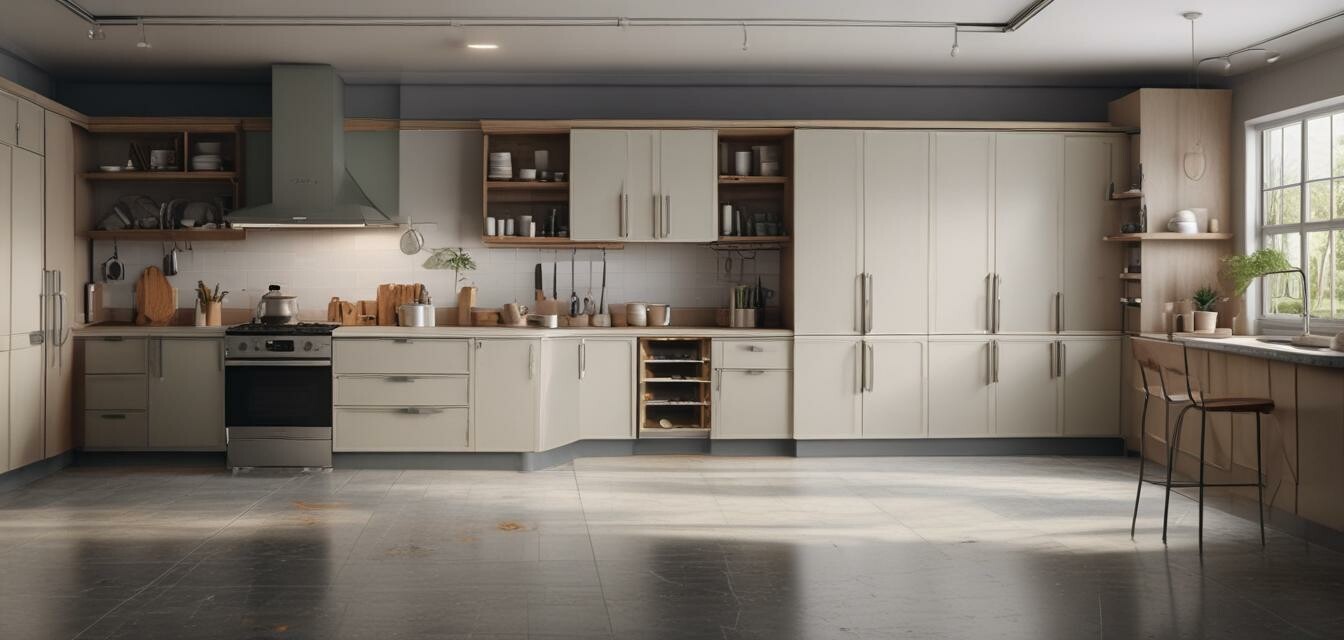
Managing appliance energy loads during home renovations
Key Takeaways
- Monitor appliance energy consumption during renovations to minimize waste.
- Implement energy-efficient practices to enhance overall efficiency.
- Plan appliance usage effectively to balance energy loads.
- Consider temporary solutions that save energy and money.
- Utilize smart appliances for real-time monitoring and management.
Renovating your home can be an exciting venture, but it can also lead to increased energy consumption if not managed properly. Planning renovations involves more than just choosing colors and layouts; it includes strategies to effectively manage appliance energy loads. This article provides valuable insights into minimizing energy waste and maximizing efficiency during your renovation projects, ensuring your appliances work optimally while also contributing to a greener planet.
Understanding energy loads
Energy load refers to the amount of energy that appliances consume during operation. When you undertake a significant home renovation, the demand on your energy system can change. Understanding how your appliances contribute to overall energy consumption helps you make informed decisions that save money and reduce environmental impact.
Types of energy loads
| Type | Description | Examples |
|---|---|---|
| Static Load | Constant energy consumption by appliances that run continuously. | Refrigerators, washing machines |
| Dynamic Load | Variable energy consumption that changes depending on usage. | Air conditioners, vacuum cleaners |
| Start-up Load | Energy spike that occurs when an appliance is first turned on. | Power tools, refrigerators |
Strategies to manage energy loads effectively
Here are some effective strategies to manage energy loads during home renovations:
- Conduct an energy audit: Before renovations begin, assess your current energy consumption. Identify which appliances use the most energy to better manage their loads during the renovation process.
- Utilize energy-efficient appliances: Invest in energy-efficient models that consume less electricity. Check out our refrigerators or washing machines for energy-efficient options.
- Stagger appliance use: Schedule when appliances operate to prevent simultaneous high energy consumption. This will spread the energy demand more evenly throughout the day.
- Consider temporary appliances: If major appliances are removed during renovations, utilize smaller, temporary appliances that consume less energy and reduce overall load.
- Incorporate smart technology: Smart appliances can help monitor and optimize energy usage. They provide real-time data, allowing you to adjust usage accordingly during renovations.
Implementing energy-saving practices
Adopting energy-saving practices during renovations can significantly lower your energy load:
Top tips for saving energy
- Turn off appliances when not in use.
- Cover unused outlets to prevent phantom loads.
- Use task lighting instead of overhead lights for focused work.
- Seal and insulate your home to minimize heating and cooling demands.
- Switch to LED lighting for lower energy usage.
Maintenance during renovations
Maintaining appliances during renovations is crucial to ensure they function efficiently:
- Clean filters and vents regularly to improve airflow and efficiency.
- Check for leaks in plumbing appliances and repair them to enhance performance.
- Schedule professional maintenance before and after renovations to ensure everything runs smoothly.
Conclusion
Managing appliance energy loads during home renovations may seem challenging, but with proper planning and implementation of strategic practices, you can minimize energy waste and maximize efficiency. Whether you're updating your kitchen or renovating your entire home, incorporating these strategies will not only lead to significant energy savings but also contribute to a more sustainable future. Remember, every effort counts!
Pros
- Reduced energy costs during and after renovations.
- Lower environmental impact.
- Enhanced appliance performance.
- Increased awareness of energy savings.
Cons
- Initial investment can be high for energy-efficient appliances.
- Not all temporary appliances may fit your needs.
- Potential disruption during renovations.
